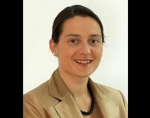From Christians Under Attack:
23 March 2012
Report on Europe finds 'numerous' anti-Christian actions, crimes
.- A new report says that 85 percent of hate crimes committed in Europe during 2011were aimed at Christians.
The report, from the Austria-based Observatory on Intolerance and Discrimination Against Christians in Europe, summarized incidents ranging from vandalism and insults to the suppression of religious symbols, desecrations, “hate crimes” and religiously motivated violence.
Dr. Gudrun Kugler, director of the observatory, said studies suggest that 85 percent of hate crimes in Europe are directed against Christians.
“It is high time for the public debate to respond to this reality!” Kugler said.
In Scotland, 95 percent of religiously motivated violence targets Christians. In France, 84 percent of vandalism is directed against Christian places of worship.
The observatory has also monitored professional restrictions on Christians. A restrictive definition of freedom of conscience means that professions such as magistrates, doctors, nurses, midwives and pharmacists are “slowly closing for Christians.”
Teachers and parents “get into trouble” when they disagree with state-defined sexual ethics, the report said.
One survey in the U.K. indicates popular perception agrees. Seventy-four percent of poll respondents said that there is more negative discrimination against Christians than people of other faiths.
The observatory intends to monitor both the social marginalization of Christians and the denial of their equal rights.
Catholic Bishop András Veres of Szombathely, Hungary, reacted to the report March 19.
“The bishops in Europe are particularly conscious of these manifestations of religious discrimination and intolerance which actually confirm how some values and fundamental rights proper to Europe, such as freedom of religion and the legal recognition of our Churches, are far from being an established reality in some nations of the continent,” said the bishop, who follows the observatory’s activities under a mandate from the Council of the Episcopal Conferences of Europe.
He characterized the report as an invitation for all Christians who have experienced discrimination or intolerance because of their religious beliefs to “step out from anonymity and be courageous.”
The observatory’s report said that the anti-Christian actions are technically “a form of persecution,” but it advised against labeling them as that in Europe to prevent confusion with anti-Christian crimes in other countries.
The report also lamented stereotypes and prejudices in public discussion about religion, such as the instantaneous and incorrect labeling of Norwegian mass murderer Anders Breivik as a fundamentalist Christian.
The observatory also noted positive developments.
“We were pleased to note that many who have focused exclusively on third world countries that demonstrated outright persecution, are beginning to notice that the marginalization and restriction of rights and freedoms of Christians in Europe are also of concern and deserves our attention,” Kugler said in the report’s introduction.
Among the highlights for 2011 were a resolution in the Parliamentary Assembly of the Organization for Security and Cooperation in Europe that encouraged public debate on anti-Christian issues and a reassessment of legislation with the potential for negative effects on Christians.
Another was the European Court of Human Rights to overturn a court decision against crucifixes in state school classrooms in Italy.
In January 2012, the Spanish government stopped a compulsory education class which drew objections from 55,000 parents, including many Christians.
The observatory stressed the religious freedom rights of both individuals and religious communities. Religion is a “valuable asset” for society that encourages healthy life and contributions to the common good, it said.
Bishop Veres encouraged religious believers to live their faith.
“(B)elieving in God must not be perceived as a fault or sign of weakness,” he said. “Living and witnessing to one’s own religious creed in respect for the freedom and sensitivity of others can only be beneficial for everyone, believers or non-believers, Christians or non-Christians.”
The bishops of Europe support those whose rights are not respected. Religious freedom is a “valuable good” that continues as a “pillar of peace on our continent,” the bishop said.
07:21 Posted in | Permalink
Trackbacks
The URL to Trackback this post is: http://mychristianblood.blogspirit.com/trackback/2846321

 Vienna, Austria, Mar 21, 2012 / 12:02 am (
Vienna, Austria, Mar 21, 2012 / 12:02 am (
No comments:
Post a Comment